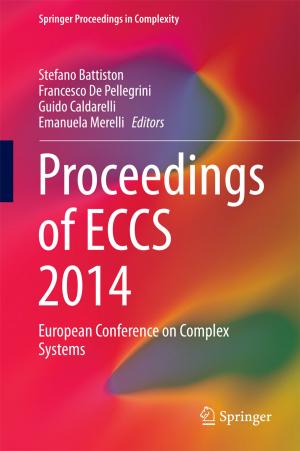The Labour Party, Denis Healey and the International Socialist Movement
Rebuilding the Socialist International during the Cold War, 1945–1951
Nonfiction, Social & Cultural Studies, Political Science, Politics, Labour & Industrial Relations, History, British| Author: | Ettore Costa | ISBN: | 9783319773476 |
| Publisher: | Springer International Publishing | Publication: | May 18, 2018 |
| Imprint: | Palgrave Macmillan | Language: | English |
| Author: | Ettore Costa |
| ISBN: | 9783319773476 |
| Publisher: | Springer International Publishing |
| Publication: | May 18, 2018 |
| Imprint: | Palgrave Macmillan |
| Language: | English |
This book describes how, after the Second World War, the Labour Party assumed leadership of the International Socialist Movement, thanks to the achievements of the Attlee Government. International Secretary Denis Healey guided the reconstruction of the Socialist International through the early Cold War, making the British vision for socialist internationalism prevail over the French and Belgian. At first, the provisional Socialist International (International Socialist Conference and Comisco) supported cohabitation with pro-communist socialists and the USSR, but with the Sovietisation of Eastern Europe it committed to militant anti-communism. Ambiguity between the Labour Party and Labour Government influenced British policy in Austria, Czechoslovakia, Greece, Italy and Poland, while the characterization and stereotypes of Eastern and Southern Europe shaped the language and actions of the British. Furthermore, the book shows how international contacts and the British and Swedish model encouraged the transition of socialist parties to responsible government parties fully embracing Western democracy and prepared the ideological revision of the 1950s.
This book describes how, after the Second World War, the Labour Party assumed leadership of the International Socialist Movement, thanks to the achievements of the Attlee Government. International Secretary Denis Healey guided the reconstruction of the Socialist International through the early Cold War, making the British vision for socialist internationalism prevail over the French and Belgian. At first, the provisional Socialist International (International Socialist Conference and Comisco) supported cohabitation with pro-communist socialists and the USSR, but with the Sovietisation of Eastern Europe it committed to militant anti-communism. Ambiguity between the Labour Party and Labour Government influenced British policy in Austria, Czechoslovakia, Greece, Italy and Poland, while the characterization and stereotypes of Eastern and Southern Europe shaped the language and actions of the British. Furthermore, the book shows how international contacts and the British and Swedish model encouraged the transition of socialist parties to responsible government parties fully embracing Western democracy and prepared the ideological revision of the 1950s.















